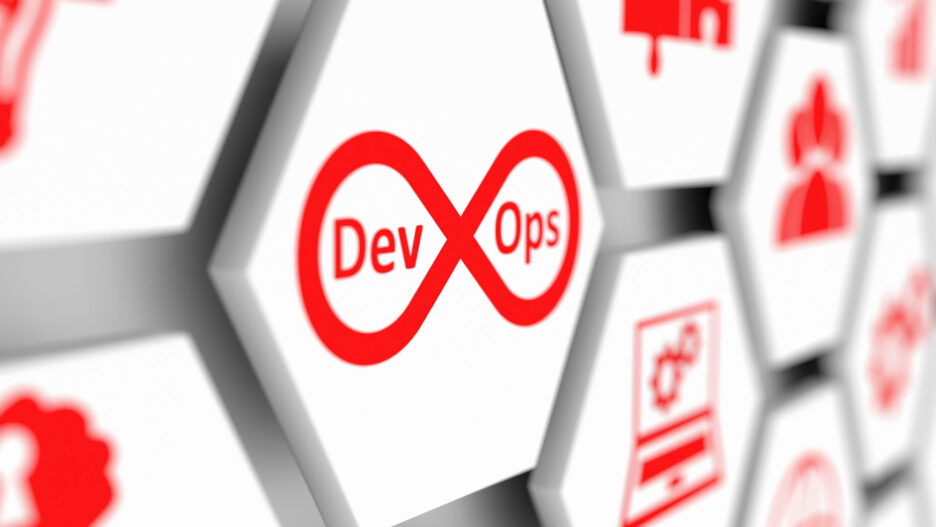What are DevOps tools?
DevOps tools are a set of instruments that help engineers automate activities between the Development team and the Operations team to build, test, and deploy software in a reliable fashion. As DevOps is becoming a standard for the software development industry, it gains a bigger role in any IT organization.
DevOps tools are categorized by multiple stages of the DevOps process:
- Plan: Define and plan business value and application requirements.
- Create: Build, code, and configure the software development process. Specific activities include design of the software and its configuration, coding, software build, and release version.
- Verify: Quality assurance stage of the software deployment. It includes acceptance testing, regression testing, vulnerability analysis, performance testing, and more.
- Pre-production: Approval process activities prior to deployment.
- Deployment: Schedule, provisioning and actual deployment of the software for production and targeted environments.
- Configuration: Additional configuration after the software is released such as storage, database, and network provisioning.
- Monitor: Identify vulnerabilities in a release via metrics and statistics.
From startups to large companies, DevOps tools have become an important part of software development, from project planning through deployment. In essence, DevOps is a practice of emphasizing collaboration and communication among software developers and other IT professionals.
DevOps is a cross-functional style of working and given its nature, it requires a set of multiple tools rather than a single DevOps tool. These sets of multiple DevOps tools are referred to as Toolchains, and we will explore them further in the following section.
DevOps Toolchain
The DevOps Toolchain, as clearly defined by IBM, is a “set of tool integrations that support development, deployment, and operation tasks.”
These collections of programming tools are responsible for delivery, development and application management as part of the development lifecycle. The tools that are part of a DevOps toolchain are executed consecutively.
DevOps tools can be existing or acquired software tools; implementing the right toolchain for your organization is crucial to improving the effectiveness of the development lifecycle and delivering applications in a swift and reliable way.
A healthy DevOps toolchain is comprised of different tools that adapt to accommodate architecture, processes and technology changes. This collection of tools should include a combination of the following categories:
- Program and project planning.
- Analysis.
- Source code management and repositories.
- Automation of build and deployment activities
- Continuous integration.
- Orchestration.
- Deployment.
- Test and quality assurance.
- Communication management.
- Security management.
- Monitoring and performance.
DevOps toolchains comprised of these tool categories help maximize the potential afforded by DevOps. They orchestrate a collaborative development process in an organization by automating activities and communication across systems and processes.
DevOps Technologies
A sustainable, successful use of DevOps must cover these three aspects: People and Culture, Process and Practices, and Tools and Technologies.
Continuous innovation is a differentiator for all companies in the IT industry. The continuous innovation that DevOps brings to the table is a valuable investment that’s been in high demand in recent years as a solution to automate the development life cycle and promote a less labor-intensive deployment culture.
Companies that adopt the DevOps culture look for collaboration, innovation, and knowledge. All parties involved in the software delivery lifecycle aspire to reach the shared goal of delivering stable, high-quality software. DevOps makes good use of technologies to achieve this goal.
There are a large number of technologies for every step of the development lifecycle. It is important to make use of the DevOps technologies that best suit your needs without going overboard with too many. It's all about finding the right balance.
DevOps Stack
Goal-based selection is the best way to choose players for your DevOps stack in terms of DevOps technologies and tools; a clear goal must be defined to assemble the optimal set.
Next, we are going to take a look at the best DevOps tools to help ensure success for your DevOps stack.
Selecting DevOps Tools
DevOps tools should be used with key practices in mind:
- Repository: Source code should be stored in a place where developers can easily access and modify code as necessary. Source control is particularly important to manage code versioning.
- Build server: Automation tool that collects all the code stored in the repository to turn it into executable code.
- Configuration: Management of the configuration in a server or environment.
- Infrastructure: Platforms with APIs to create new machines.
- Testing: Mainly automated testing to ensure the code is deployable.
- Orchestration: Blueprint of the entire development lifecycle.
Some of the most well-known, best DevOps tools include:
- JIRA: Agile tool by Atlassian designed as a planning tool. It supports sprint planning features and integrates enterprise platforms to plan DevOps workflows. It provides collaboration tools amongst multiple teams with open communication flow.
- Docker: a packaging application that uses containers to deliver coupled services.
- Apache Maven: Java-based development tool that offers a centralized system of plugins for code builds.
- Puppet: an open-source configuration management tool that automates software delivery.
- Selenium: an open-source testing framework for web applications with a friendly interface for automated tests. It writes test scripts in multiple languages including Python, Java, C#, Ruby, and more.
- Chef: an open-source configuration tool to turn infrastructure into code. It is easy to integrate with cloud-based platforms.
- Ansible: an open-source tool that automates apps, network configuration, cloud deployments, environment development, and more.
- Splunk: a platform that stores, searches, analyzes and visualizes machine-generated data.
- Nagios: a monitoring system that identifies and solves infrastructure-related issues before they can cause failures.
- New Relic: web and mobile app performance tool with analytic capabilities. It monitors in real-time the performance of apps in the cloud, on-premise, or hybrid environments.
- Jenkins: an open-source automation server that supports integration and delivery.
- Git Central Repository: an open-source control system that tracks changes and allows for distributed deployment.
- Capistrano: a remote server automation and deployment tool for web applications. Written in Ruby, it is capable of supporting multiple coding languages or frameworks.
With many more options available in the DevOps tools list, these are just some options that are popular DevOps tools amongst DevOps advocates. Next, we are going to talk about DevOps automation tools, DevOps deployment tools, and DevOps orchestration tools and their role in the deployment lifecycle.
DevOps Automation tools
DevOps automation tools automate tasks. They are capable of automating release processes, infrastructure changes, testing, continuous configuration, container management, and more. DevOps Automation tools free up developers’ hands so they can solely focus on building faster and more efficiently. With automation, a more holistic approach to DevOps tools is possible. With automation in mind, let’s review the practice of rapid, continuous DevOps deployment tools.
DevOps Deployment Tools
Deployment tools in DevOps operate robust systems to write, test and deploy code. They enable collaboration of teams, languages, and platforms. These frameworks are almost a given for any developer’s tool belt as they are solely dedicated to deploying services and applications in a swift, high-quality, effective way.
Code deployment is the heart of DevOps tools but they also include a variety of features to make the life of developers a lot easier. These features include code change tracking, automated integration of release management, templates for minimal configuration, plugins, dashboards, and more.
We already mentioned a few with more detail, but here are more DevOps deployment tools available:
In essence, DevOps deployment tools help make an easy task out of a complex deployment.
DevOps Orchestration
Even though they are separate tools, orchestration cannot exist without automation. DevOps orchestration tools undertake the load of handling manual, day-to-day activities. They convert an array of automated tasks or processes into a consolidated workflow.
The orchestration of multiple automated tasks helps create repeatable, reusable workflows that streamline the development lifecycle. In essence, DevOps orchestration tools optimize processes by deploying components that communicate and connect users and other applications. A well-known orchestration solution is Kubernetes. This container orchestration tool groups containers that make up an application into logical units for easy management and discovery.
Conclusion
With new technologies and market trends on the horizon, the demand for services and products is becoming formidable. IT organizations find themselves constantly struggling to offer innovative and flexible solutions that are cost-effective and high-quality.
For many, DevOps is the solution. Over the years, the tools and technologies linked to the DevOps culture are more reliable and optimized to increase efficiency and meet market demands.
With DevOps practices, organizations gain a number of benefits that include:
- Speed and faster delivery
- Scalability
- Reliable operating environments
- Improved resource utilization
- Collaboration
- Automation
- Innovation
With all these benefits to consider, DevOps is on the road to becoming the key to organizational success and digital transformation.





